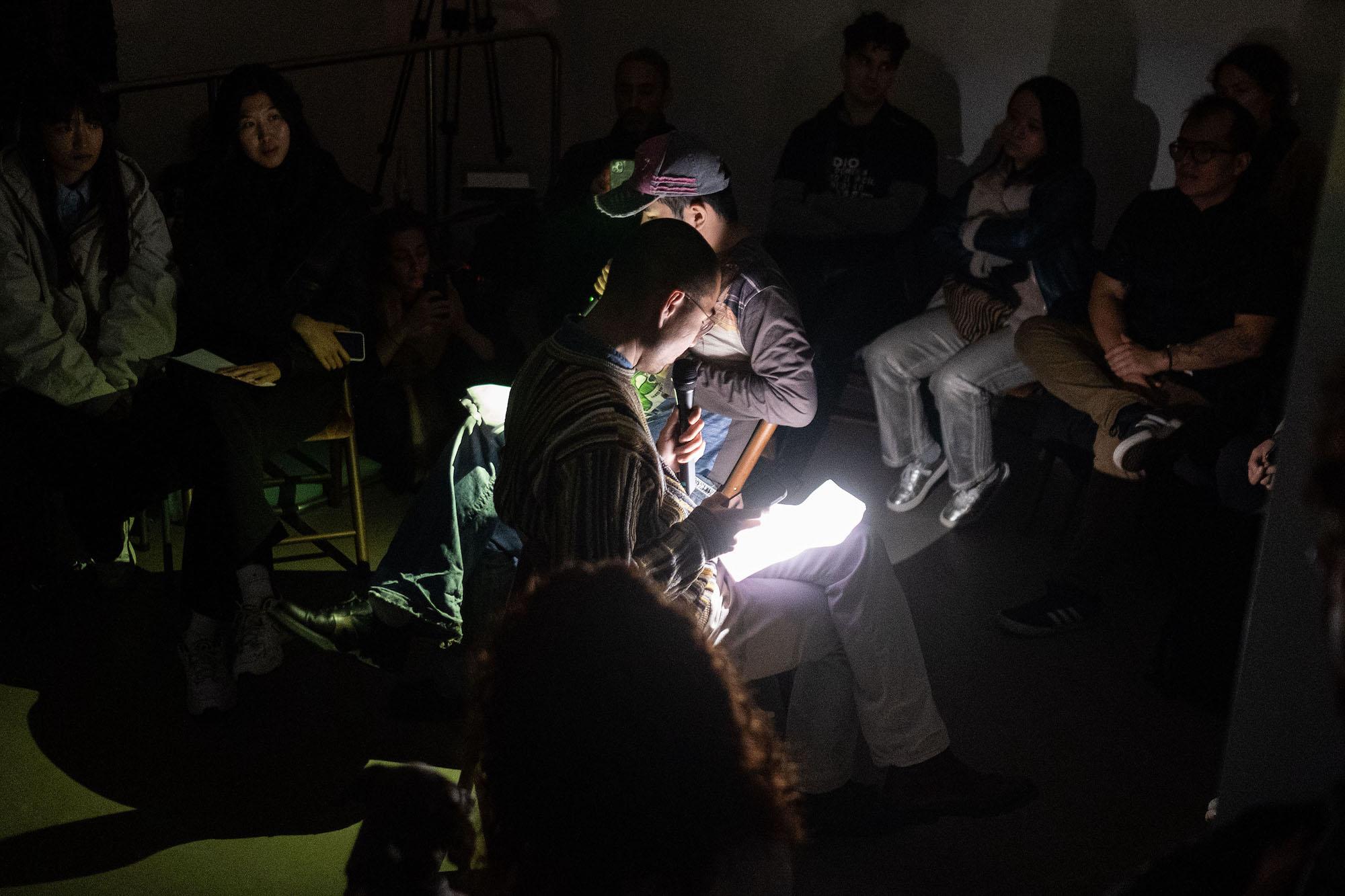
KUNSTRAUM MEMPHIS, LINZ: Zishi Han and Wei Yang, “Hairpin Beneath 钗之后”, 28 May, 2024, 20:30
Emerging from Zishi Han and Wei Yang’s ongoing collaborative research project into historical Chinese homoerotic literature, Hairpin Beneath is an evolving performance that intertwines multiple narratives to explore queer existences in China and the Chinese diaspora. The point of their departure is a Ming dynasty anthology of homoerotic stories, ‘弁而釵’ (Biàn ér chāi). The title of the book implies the scene of a man taking off his ceremonial headgear and putting on a woman's hairpin. Structured around a set of excerpts from the book, they loosely interpret its storylines and draw on a variety of Chinese historical and contemporary cultural practices, such as poetry, Chinese Opera, literati landscape painting, Danmei literature, pop music and reality TV shows. Oscillating between live reading and video projection, they assemble formally distinct but correlating components of the performance to dwell amidst the blurry boundary between the fictional and the biographical.
The video storyline is loosely based on ‘情贞记’ (A Story of Faithful Love) from ‘弁而釵’ (Biàn ér chāi), an anthology of four homoerotic short stories by 醉西湖心月主人 (The Moon-Heart Master of the Drunken West Lake), first published by 筆耕山房 (Ploughing the Mountain with a Brush Studio) during the reign of the Chongzhen Emperor (1628–1644).Live reading texts are drawn from Biàn ér chāi (bai hua version), translated into written vernacular Chinese by 执迷 (Zhí mí), published in instalments on 书香门第 (Shū xiāng mén dì). Excerpts are edited and translated into English by Zishi Han and Wei Yang.
With special thanks to Christien Vargas, Wanwen Zhang, Mei Tao, Augustine Paredes, Elisa Diaferia, Slavs and Tatars, Delfina Foundation, Städelschule Portikus e.V., DAAD
Zishi Han (b. Beijing, lives and works in Frankfurt am Main) probes masochistic attachment to power structures through installation, sculpture, video and drawing. Drawn to forms that hold and let through, he constructs possessed and perverted apparatuses to dismantle previous relations and incubate unexplored desires.
Wei Yang (b. Liuzhou, lives and works in Frankfurt am Main) explores human beings as a geographic subject in diasporic spaces. He layers collective memories to create hybrid images through myths, history and personal landscapes, which serve as sites of resistance against grand narratives and archival neglect.
Wei Yang (b. Liuzhou, lives and works in Frankfurt am Main) explores human beings as a geographic subject in diasporic spaces. He layers collective memories to create hybrid images through myths, history and personal landscapes, which serve as sites of resistance against grand narratives and archival neglect.

